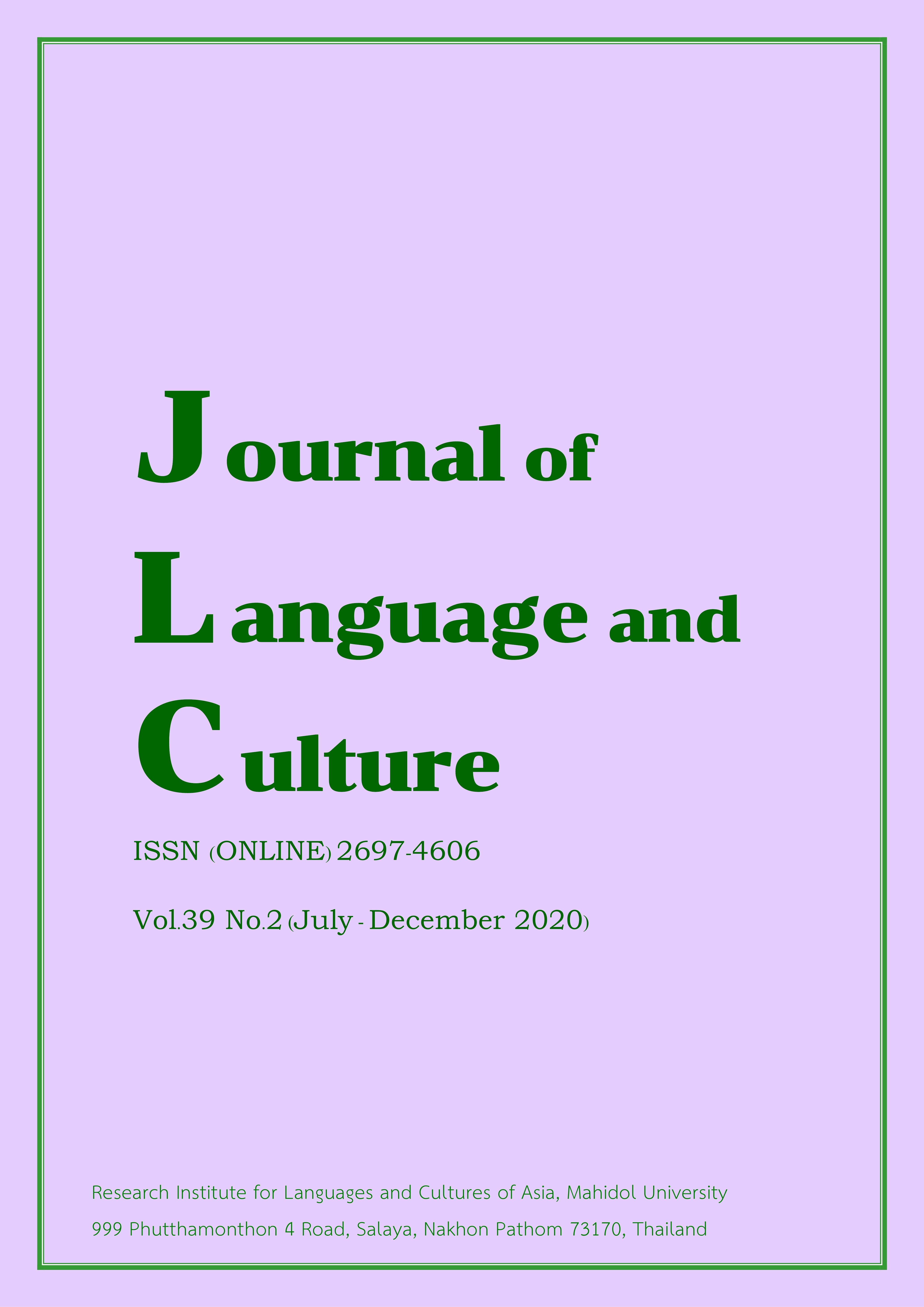A corpus-based study of specialized vocabularies in industrial work for developing industrial word lists of English for science and technology class
Main Article Content
Abstract
In English for Specific Purposes (ESP), area-specific language and vocabulary are key success factors for learners. This paper aimed to investigate the most frequently-occurring specialized vocabularies in industrial sectors based on authentic materials, in an effort to create Industrial Word Lists (IWL) that can be used in English for science and technology classes. The corpus was developed from three sub-fields of industry, and includes 19,582 running words. AntConc (version 3.5.8) was used to determine the viability of both the Industrial Word List and of English for science and technology textbooks. The 439 words included in the Industrial Word List (IWL) were collected and analyzed by comparing them against three word lists that are currently used. Overlap was found between the IWL and these other word lists, namely, the Outside Word List (OWL) with an overlap of 132 words (31.21%), the General Service List (GSL) with an overlap of 222 words (50.57%) and the Academic Word List (AWL) with an overlap of 80 words (18.22%). This comparative study of keyword lists with authentic industrial materials and English for science and technology textbooks utilizing AntConc reveals that most authentic industrial materials include specialized language. However, there is a shortage of specialized vocabularies for specific careers in textbooks. Finally, the pedagogical implications are offered for English for science and technology classes by improvement of the English for science and technology textbooks
Article Details
The articles featured in the Journal of Language and Culture (JLC) constitute academic works representing the viewpoints of the respective author(s). It is crucial to note that these opinions do not necessarily reflect those of the Editorial Board.
All articles published in JLC are released under the Creative Commons Attribution 4.0 International License (CC BY 4.0). This license grants permission for unrestricted use, distribution, and reproduction in any medium, provided proper credit is given to the original author(s) and the source.


